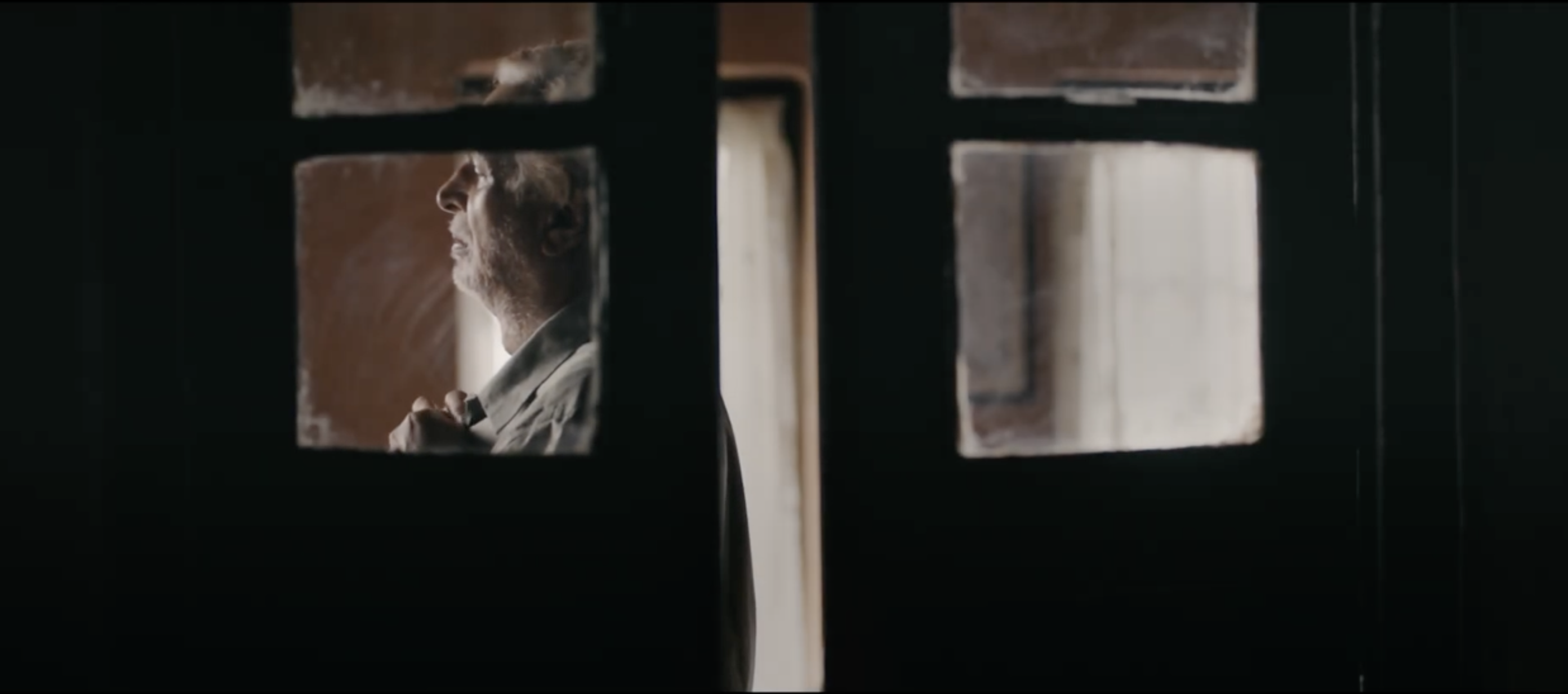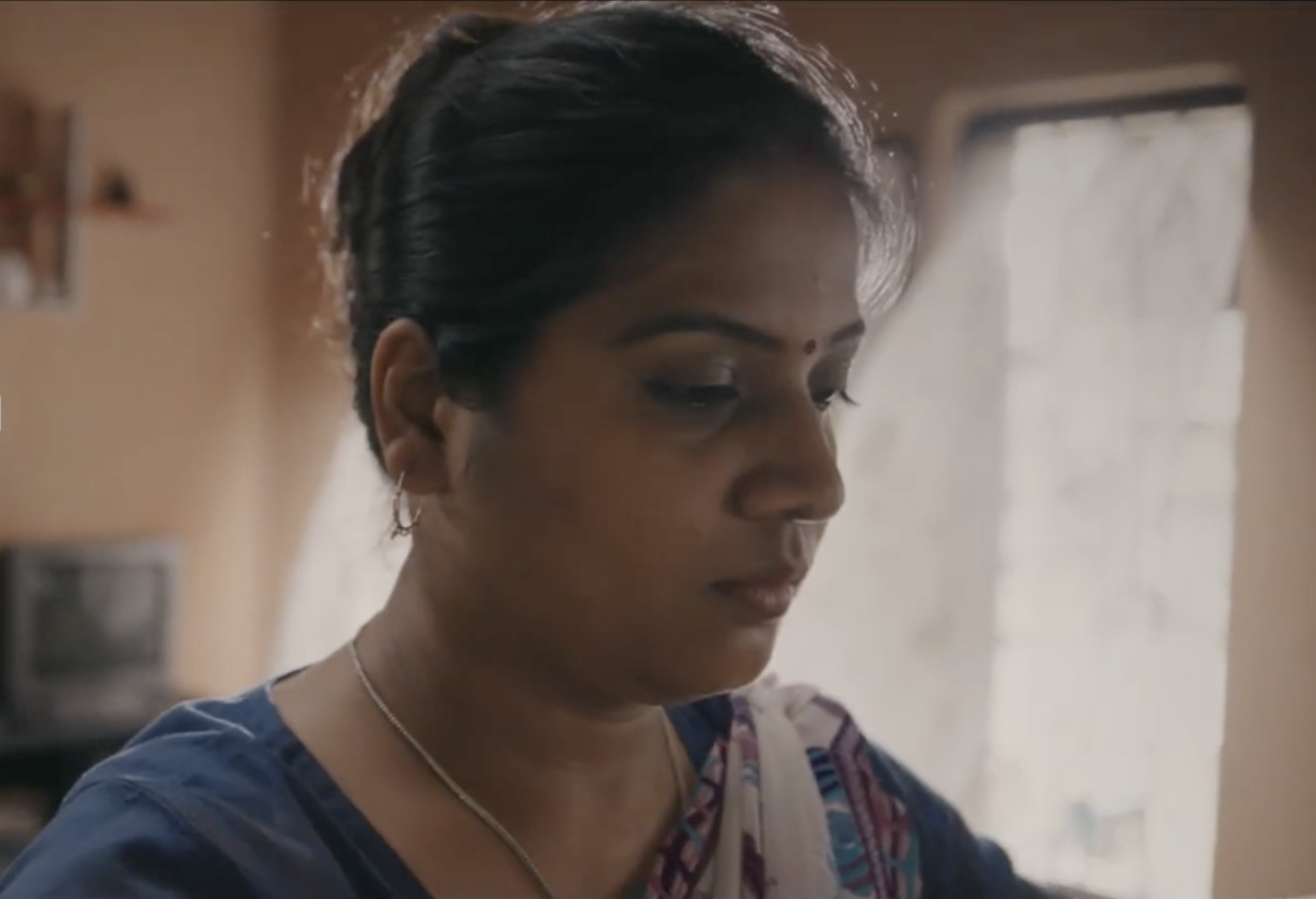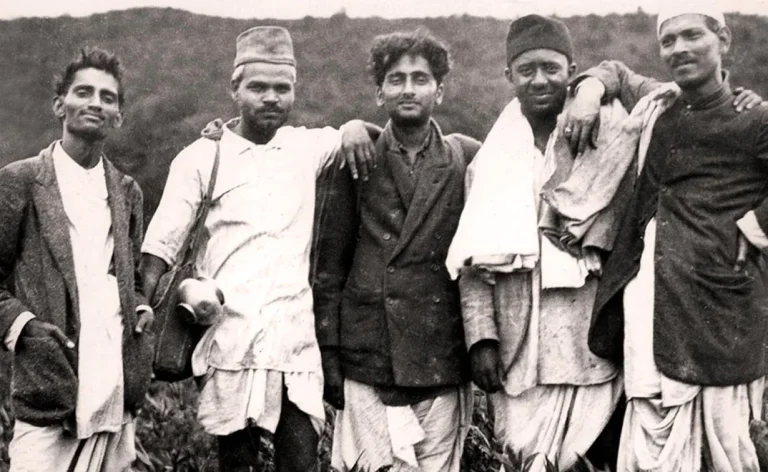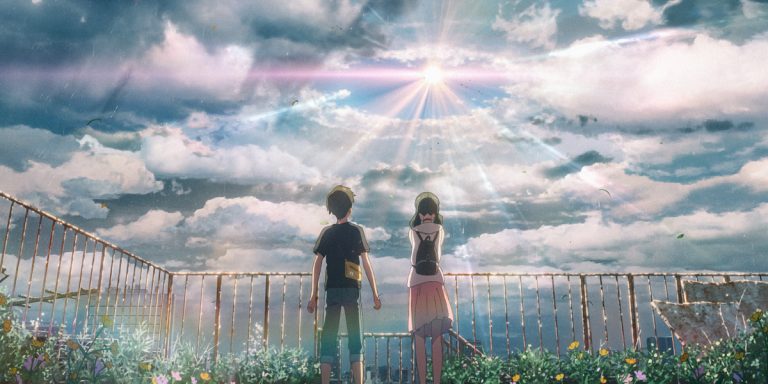In 2008, Durlov Dutta, a retired teacher, lost more than a son to the tragic Assam bomb blasts of 30th October that year. In a tragedy that shook the Northeastern state of India to the core, Dutta lost his voice and his sense of time. Thirteen years later, he continues to be a regular visitor at the local police station and maintains continuity with his letters addressed to the Chief Minister of the State. In doing so, he registers an untiring search for his son and embraces a grief that neither allows him to rest nor speak. The world has moved on since, but Dutta remains stuck, unable to escape the grip of the cold past. The past haunts him like a shadow that knows no end. Can there be any closure for such an eternal imposition and suffering?
Filmmaker Himjyoti Talukdar’s sophomore feature, “Taarikh” (2024), returns to the familial roots of his debut, “Calendar” (2018), which expresses a unity of the exploration of the parent-child bond that defines both works. But the conflict in “Taarikh” (2024) resides within Dutta’s life—where his physicality has accepted the temporality of life but the incorporeality of his mind suggests otherwise.
Talukdar’s portrait of this man lost in time is realized to the core by veteran actor Arun Nath, whose caliber as an actor needs no new introduction for audiences and readers in Assam. Arun Nath shares that grief of pain and loss with the character and presents Dutta’s ‘tugged in the past’ personality through the iconography of white hair, a jhola bag, and a well-worn grey shirt that supports the character with a purposeful lack of expressiveness claimed by a sad stillness.
The story is situated in the ever-growing hustling and bustling hub of Assam, the city of Guwahati. Thirteen years later, the city has surely evolved but in this same city that has long since moved on, Dutta’s sorrow is a harsh truth and a painful reminder of the tragic past. It is silent and muted, yet it continues to exist along the periphery of the rush and pulse of urban life.

Talukdar deliberately situates Durlov Dutta in this city of contradictions—a city that leaves time behind in its rush to move fast. And the spirit of indifference that it carries, fails to recognize Dutta’s pursuit and rather seeks to relegate him as the madman, trapped in a memory that no one else shares. As much as Dutta chases the ghosts of his past, he is equally followed by them which ends up crippling his social, emotive, and adaptive functions. He neither reaches out to others nor is he sought after by anyone. He is socially marooned in a city that is otherwise ever-welcoming, energetic, and noisy.
But there is a balance of such bleakness in the film with a subtle counterpoint in the character of Anuran Hazarika (Boloram Das), a headstrong but compassionate journalist. Filmmaker Himjyoti Talukdar positions Anuran Hazarika, as an empathetic anchor of the story to counterbalance the emotional isolation of Dutta. Hazarika offers a hopeful possibility in the face of an atmosphere of affectionate detachment that dictates the entirety of Durlov Dutta’s existence. Without his presence, there would be no emotional resolution for the story. Hazarika thus acts as a compassionate bridge between Dutta’s painful past and his future possibilities of healing, so that his closure can also become the resolution of the narrative.
This narrative of hope is also navigated with much faith expressed in the characters of Basanta mechanic (Kula Kuldip Saharia) and Radha (Swagata Bharali), who have no bloodlines but are essential in providing the unrealized need for care and support to Dutta. They protect Dutta when he is at his most vulnerable. Known for his sensitive handling of subjects, Talukdar also approaches the story with a psychological touch of realism to define the imprisonment of a man who is unable to escape his grief. In one scene, Durlov Dutta is taking a class with a room full of students when suddenly the students disappear. Now his son sits in front of him. But when Dutta approaches his son, he wakes up. It was an evening dream.
Such shifts in boundaries blur the lines between his past, present, and memory as different versions of his past come together and merge with the present to become his only memory – a memory that is defined by his son. It’s not that Dutta cannot feel time. In another scene, he quietly observes the tranquillity of a flowing river. It is just that he cannot perceive the course of its tide like other people.

“Taarikh” (2024) is also a reminder of the stoic city which, along with its transformative journey, also carries multiple stories of desire and unfulfillment within it. Shot around some landmark locations and localities that Guwahatians can easily identify with, the film also features music composer and singer Ramen Baruah in a key scene filmed in the Uzan Bazar area of Guwahati. In his absence today, the film not only mirrors the city but also serves as a reflection of the passing of time.
Set against the backdrop of the tragic 2008 Assam bomb blasts, “Taarikh” (2024), while specific in its context, also broadens as a powerful exploration of universal themes like the human experience of grief and the unspoken yearning for support and closure. In a world torn by war and suffering, it is more relevant now than ever before. Using the character of Durlov Dutta, the filmmaker honors the ongoing, yet often unseen, struggles that continue in the lives of the people affected by a tragedy even as society’s collective memory of the past begins to fade. It expresses a strong faith in the quiet but potent possibilities of change and reminds us that healing is both a personal and a collective journey.
Produced by Arundhati Sarmah Baruah and Dr Muktismaan Hazarika, “Taarikh” (2024) premiered at the 22nd Chennai International Film Festival 2024 where it was the only film selected from Assam and Northeast India that year. It was also recently screened at the 23rd Pune International Film Festival, 2025. The cast of the film includes Arun Nath, Boloram Das, Swagata Bharali, Kula Kuldip Saharia, Dr. Jayanta Das, and Mintu Barua with Lima Das in a special role. Written by Himjyoti Talukdar, Ankurjyoti Deka, and Adhiraj Kashyap, “Taarikh” (2024) is shot by Aniruddha Barua and edited by Uddipta Kumar Bhattacharyya with music by Tarali Sarma.
“Taarikh” (2024) will soon roll out theatrically in Assam and other selected screens throughout India.

![The Assassin [2015] : Visual Poetry](https://79468c92.delivery.rocketcdn.me/wp-content/uploads/2016/09/assassin_hi_res_3-768x512.jpg)




